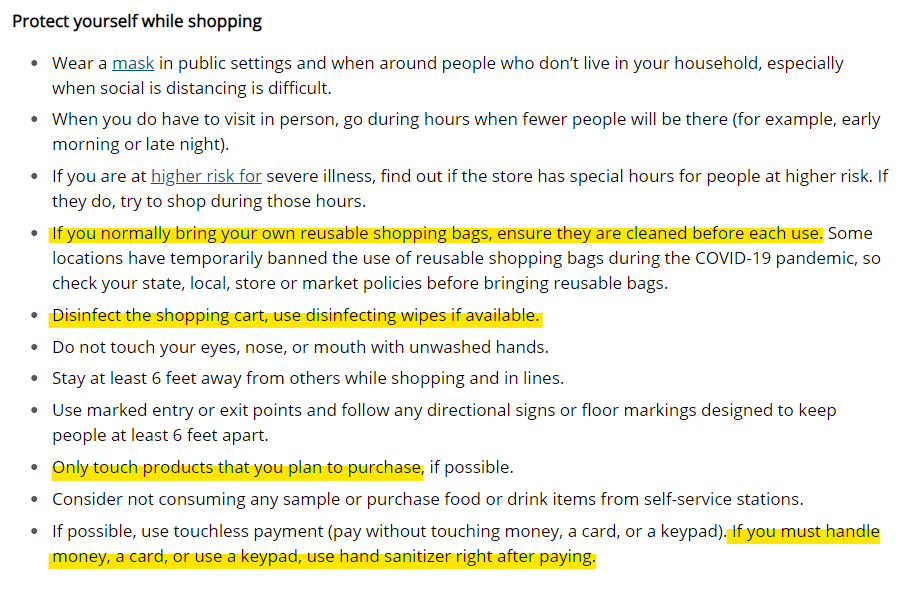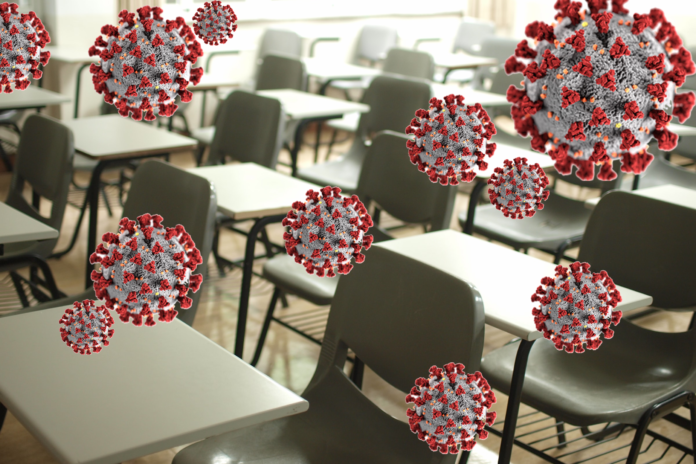The coronavirus will not spread via surfaces in the overwhelming majority of cases and disinfection is unnecessary, according to the latest science.
For over a year, Americans have been wiping, spraying and scrubbing surfaces in the hopes of reducing COVID-19 transmission, spurred on by leaders in the media and government. However, the Centers for Disease Control and Prevention (CDC) now says this is unnecessary.
“Based on available epidemiological data and studies of environmental transmission factors, surface transmission is not the main route by which SARS-CoV-2 spreads, and the risk is considered to be low,” the CDC said in a report released Monday.
The reason for this is twofold.
First, coronavirus doesn’t survive very long. Researchers are unable “to detect viable virus within minutes to hours” of it being deposited on porous surfaces, per the CDC.
Second, even if a person does touch an infected surface the odds they will actually contract the virus are basically zero. “The risk of SARS-CoV-2 infection via the fomite [surface] transmission route is low, and generally less than 1 in 10,000, which means that each contact with a contaminated surface has less than a 1 in 10,000 chance of causing an infection,” the CDC says.
The report may impact the way coronavirus precautions are enacted in businesses and workplaces.
“In public spaces and community settings, available epidemiological data and QMRA studies indicate that the risk of SARS-CoV-2 transmission from fomites is low,” per the CDC. “There is little scientific support for routine use of disinfectants in community settings, whether indoor or outdoor, to prevent SARS-CoV-2 transmission.”
This apparently contradicts a previous “guidance for cleaning and disinfecting public spaces” that the CDC issued, which seemed to suggest such measures are immediately necessary.
CDC Director Rochelle Walensky also released a statement April 5 that drastically relaxes the agency’s position on disinfection.
“In most situations, regular cleaning of surfaces with soap and detergent, not necessarily disinfecting those surfaces, is enough to reduce the risk of COVID-19 spread,” she said via a White House press release.
This marks an about-face relative to the CDC’s previous advice, which used to recommend that shoppers disinfect their carts and minimize contact with merchandise in the store and money, apparently for fear that COVID may lie on those surfaces.

In fact, the CDC provided a number of similar guides over the last year that upheld the danger posed by surface-based virus transmission and the importance of regular disinfection. There was a special guidance on this topic issued for colleges and universities, vehicle operators, homeowners and more.
The EPA even issued instructions to the public on how to access its list of approved disinfectants, which are apparently no longer required.











